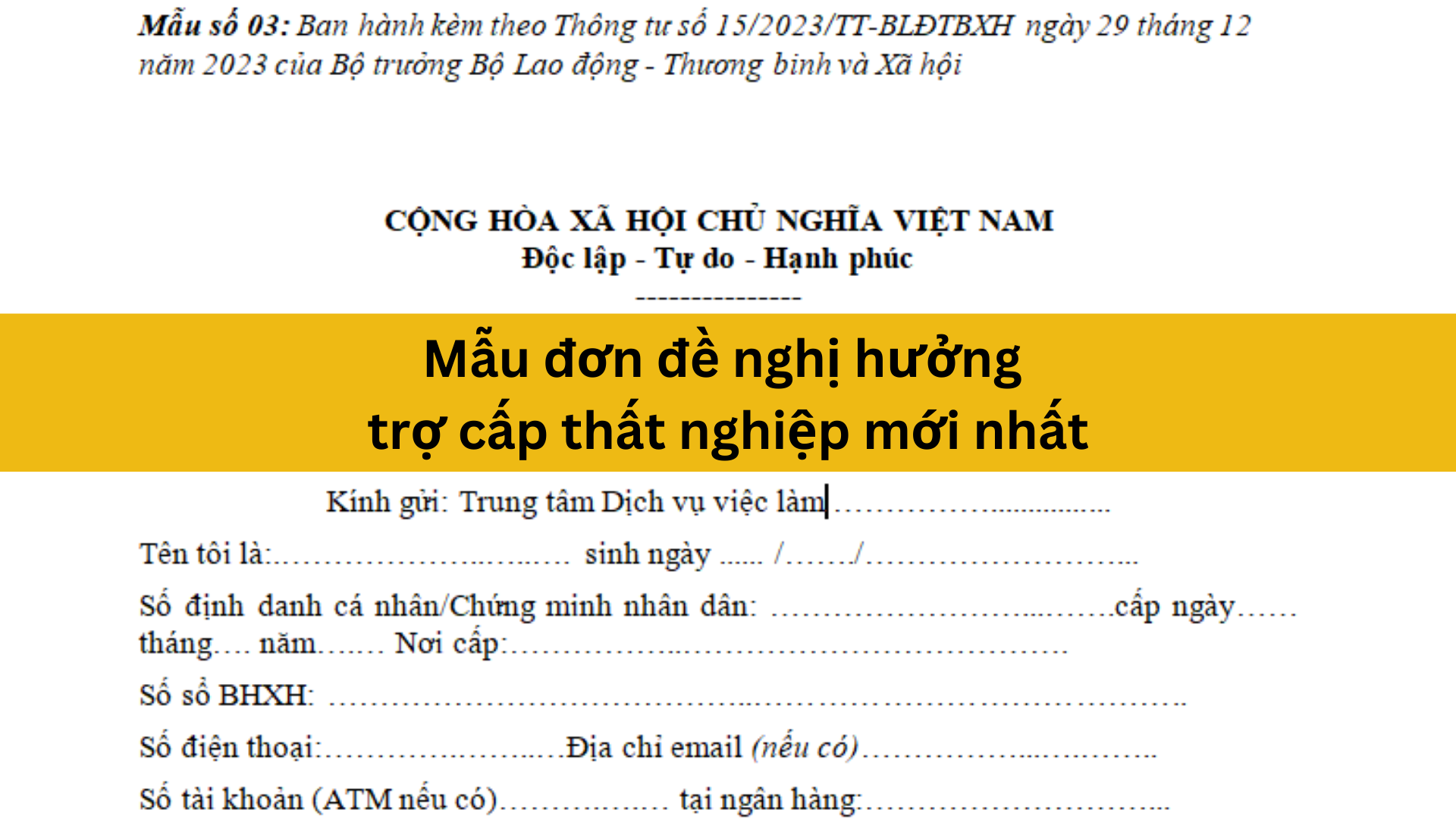 Tìm kiếm
Tìm kiếm
Chương 1 Luật việc làm 2013: Những quy định chung
| Số hiệu: | 38/2013/QH13 | Loại văn bản: | Luật |
| Nơi ban hành: | Quốc hội | Người ký: | Nguyễn Sinh Hùng |
| Ngày ban hành: | 16/11/2013 | Ngày hiệu lực: | 01/01/2015 |
| Ngày công báo: | 29/12/2013 | Số công báo: | Từ số 1003 đến số 1004 |
| Lĩnh vực: | Bảo hiểm, Lao động - Tiền lương | Tình trạng: | Còn hiệu lực |
TÓM TẮT VĂN BẢN
Văn bản tiếng việt
Văn bản tiếng anh
Luật này quy định chính sách hỗ trợ tạo việc làm; thông tin thị trường lao động; đánh giá, cấp chứng chỉ kỹ năng nghề quốc gia; tổ chức, hoạt động dịch vụ việc làm; bảo hiểm thất nghiệp và quản lý nhà nước về việc làm.
Luật này áp dụng đối với người lao động, người sử dụng lao động và cơ quan, tổ chức, cá nhân khác có liên quan đến việc làm.
Trong Luật này, các từ ngữ dưới đây được hiểu như sau:
1. Người lao động là công dân Việt Nam từ đủ 15 tuổi trở lên, có khả năng lao động và có nhu cầu làm việc.
2. Việc làm là hoạt động lao động tạo ra thu nhập mà không bị pháp luật cấm.
3. Tiêu chuẩn kỹ năng nghề quốc gia là quy định về kiến thức chuyên môn, năng lực thực hành và khả năng ứng dụng kiến thức, năng lực đó vào công việc mà người lao động cần phải có để thực hiện công việc theo từng bậc trình độ kỹ năng của từng nghề.
4. Bảo hiểm thất nghiệp là chế độ nhằm bù đắp một phần thu nhập của người lao động khi bị mất việc làm, hỗ trợ người lao động học nghề, duy trì việc làm, tìm việc làm trên cơ sở đóng vào Quỹ bảo hiểm thất nghiệp.
5. Việc làm công là việc làm tạm thời có trả công được tạo ra thông qua việc thực hiện các dự án hoặc hoạt động sử dụng vốn nhà nước gắn với các chương trình phát triển kinh tế - xã hội trên địa bàn xã, phường, thị trấn (sau đây gọi chung là cấp xã).
1. Bảo đảm quyền làm việc, tự do lựa chọn việc làm và nơi làm việc.
2. Bình đẳng về cơ hội việc làm và thu nhập.
3. Bảo đảm làm việc trong điều kiện an toàn lao động, vệ sinh lao động.
1. Có chính sách phát triển kinh tế - xã hội nhằm tạo việc làm cho người lao động, xác định mục tiêu giải quyết việc làm trong chiến lược, kế hoạch phát triển kinh tế - xã hội; bố trí nguồn lực để thực hiện chính sách về việc làm.
2. Khuyến khích tổ chức, cá nhân tham gia tạo việc làm và tự tạo việc làm có thu nhập từ mức lương tối thiểu trở lên nhằm góp phần phát triển kinh tế - xã hội, phát triển thị trường lao động.
3. Có chính sách hỗ trợ tạo việc làm, phát triển thị trường lao động và bảo hiểm thất nghiệp.
4. Có chính sách đánh giá, cấp chứng chỉ kỹ năng nghề quốc gia gắn với việc nâng cao trình độ kỹ năng nghề.
5. Có chính sách ưu đãi đối với ngành, nghề sử dụng lao động có trình độ chuyên môn kỹ thuật cao hoặc sử dụng nhiều lao động phù hợp với điều kiện phát triển kinh tế - xã hội.
6. Hỗ trợ người sử dụng lao động sử dụng nhiều lao động là người khuyết tật, lao động nữ, lao động là người dân tộc thiểu số.
1. Ban hành và tổ chức thực hiện văn bản quy phạm pháp luật về việc làm.
2. Tuyên truyền, phổ biến và giáo dục pháp luật về việc làm.
3. Quản lý lao động, thông tin thị trường lao động, đánh giá, cấp chứng chỉ kỹ năng nghề quốc gia và bảo hiểm thất nghiệp.
4. Quản lý tổ chức và hoạt động của trung tâm dịch vụ việc làm, doanh nghiệp hoạt động dịch vụ việc làm.
5. Kiểm tra, thanh tra, giải quyết khiếu nại, tố cáo và xử lý vi phạm pháp luật về việc làm.
6. Hợp tác quốc tế về việc làm.
1. Chính phủ thống nhất quản lý nhà nước về việc làm trong phạm vi cả nước.
2. Bộ Lao động - Thương binh và Xã hội chịu trách nhiệm trước Chính phủ thực hiện quản lý nhà nước về việc làm.
Bộ, cơ quan ngang bộ trong phạm vi nhiệm vụ, quyền hạn của mình có trách nhiệm phối hợp với Bộ Lao động - Thương binh và Xã hội thực hiện quản lý nhà nước về việc làm.
3. Ủy ban nhân dân các cấp trong phạm vi nhiệm vụ, quyền hạn của mình, thực hiện quản lý nhà nước về việc làm tại địa phương.
1. Mặt trận Tổ quốc Việt Nam và các tổ chức thành viên trong phạm vi chức năng, nhiệm vụ của mình có trách nhiệm tuyên truyền, vận động cơ quan, doanh nghiệp, đơn vị, tổ chức và cá nhân tạo việc làm cho người lao động; tham gia với cơ quan nhà nước trong việc xây dựng và giám sát việc thực hiện chính sách, pháp luật về việc làm theo quy định của pháp luật.
2. Cơ quan, tổ chức trong phạm vi nhiệm vụ, quyền hạn của mình có trách nhiệm tuyên truyền, phổ biến chính sách, pháp luật về việc làm; tạo việc làm; bảo vệ quyền và lợi ích hợp pháp của người lao động, người sử dụng lao động theo quy định của pháp luật.
3. Cá nhân có trách nhiệm chủ động tìm kiếm việc làm và tham gia tạo việc làm.
1. Phân biệt đối xử trong việc làm và nghề nghiệp.
2. Xâm phạm thân thể, danh dự, nhân phẩm, tài sản, quyền, lợi ích hợp pháp của người lao động, người sử dụng lao động.
3. Tuyển dụng, sử dụng người lao động vào làm việc trái quy định của pháp luật.
4. Dụ dỗ, hứa hẹn và quảng cáo gian dối để lừa gạt người lao động hoặc lợi dụng dịch vụ việc làm, thông tin thị trường lao động để thực hiện những hành vi trái pháp luật.
5. Gian lận, giả mạo hồ sơ trong việc thực hiện chính sách về việc làm.
6. Cản trở, gây khó khăn hoặc làm thiệt hại đến quyền và lợi ích hợp pháp của người lao động, người sử dụng lao động.
Article 1. Scope of regulation
This Law provides employment creation support policies; labor market information; assessment and grant of certificates of national occupational skills; employment service organizations and activities; unemployment insurance; and state management of employment.
Article 2. Subjects of application
This Law applies to workers, employers and other agencies, organizations and individuals involved in employment.
Article 3. Interpretation of terms
In this Law, the terms below are construed as follows:
1. Worker means a Vietnamese citizen who is full 15 years or older, has ability to work and seeks employment.
2. Employment means an income-generating working activity not banned by law.
3. National occupational skills standards means regulations on professional knowledge, practice capacity, and ability to apply such knowledge and capacity in work, which are required for a worker to perform his/her work depending on each qualification level of skills of each occupation.
4. Unemployment insurance means a scheme aiming to compensate part of income of a worker when he/she becomes unemployed, support him/her to receive vocational training, maintain employment, or seek employment, on the basis of making contributions to the Unemployment Insurance Fund.
5. Public employment means paid temporary employment which is created through the implementation of state-funded projects or activities associated with socio-economic development programs in communes, wards or townships (below referred to as communes).
Article 4. Principles of employment
1. Ensuring the right to work and freely choose jobs and workplaces.
2. Ensuring equality in employment opportunities and incomes.
3. Ensuring working under safe and hygienic conditions.
Article 5. State policies on employment
1. To adopt socio-economic development policies aiming to create employment for workers, identify employment creation objectives in socio-economic development strategies and plans; to allocate resources for the implementation of employment policies.
2. To encourage organizations and individuals to create employment for others and for themselves with incomes at least equal to the minimum wage level, contributing to socio-economic and labor market development.
3. To adopt policies on employment creation support, labor market development and unemployment insurance.
4. To adopt policies on assessment and grant of certificates of national occupational skills in association with improvement of occupational skills qualifications.
5. To adopt preferential policies for sectors and trades that use workers with high professional and technical qualifications or use many workers, as suitable to socio-economic development conditions.
6. To support employers that employ many people with disabilities, women and ethnic minority people.
Article 6. Contents of the state management of employment
1. Promulgating, and organizing the implementation of, legal documents on employment.
2. Propagating, disseminating and educating about the law on employment.
3. Managing workers, labor market information, assessment and grant of certificates of national occupational skills, and unemployment insurance.
4. Managing the organization and operation of employment service centers and employment service enterprises.
5. Examining, inspecting, settling complaints and denunciations, and handling violations of the law on employment.
6. Carrying out international cooperation on employment.
Article 7. Competence to perform the state management of employment
1. The Government shall uniformly perform the state management of employment nationwide.
2. The Ministry of Labor, War Invalids and Social Affairs shall take responsibility before the Government for the state management of employment.
Ministries and ministerial-level agencies shall, within the ambit of their tasks and powers, coordinate with the Ministry of Labor, War Invalids and Social Affairs in, performing the state management of employment.
3. People’s Committees at all levels shall, within the ambit of their tasks and powers, perform the state management of employment in localities.
Article 8. Responsibilities of agencies, organizations and individuals for employment
1. The Vietnam Fatherland Front and its member organizations shall, within the ambit of their functions and tasks, mobilize agencies, enterprises, units, organizations and individuals to create employment; and join state agencies in formulating, and supervising the implementation of, policies and laws on employment in accordance with law.
2. Agencies and organizations shall, within the ambit of their tasks and powers, propagate and disseminate policies and laws on employment; create employment; and protect the lawful rights and interests of workers and employers in accordance with law.
3. Individuals shall take the initiative in seeking employment and participating in employment creation.
1. Committing discriminatory acts in employment and occupations.
2. Infringing upon the body, honor, dignity, property, the lawful rights and interests of workers or employers.
3. Recruiting or employing workers in contravention of law.
4. Enticing, promising and deceitfully advertising to deceive workers, or taking advantage of employment services or labor market information to commit illegal acts.
5. Committing fraud or forging dossiers in the implementation of employment policies.
6. Obstructing, or causing difficulties or damage to, the lawful rights and interests of workers or employers.
Văn bản liên quan
Cập nhật
Điều 7. Thẩm quyền quản lý nhà nước về việc làm
Điều 8. Trách nhiệm của cơ quan, tổ chức và cá nhân về việc làm
Điều 45. Thời gian đóng bảo hiểm thất nghiệp
Điều 46. Hưởng trợ cấp thất nghiệp
Điều 50. Mức, thời gian, thời điểm hưởng trợ cấp thất nghiệp
Điều 53. Tạm dừng, tiếp tục, chấm dứt hưởng trợ cấp thất nghiệp
Điều 54. Tư vấn, giới thiệu việc làm
Điều 7. Thẩm quyền quản lý nhà nước về việc làm
Điều 8. Trách nhiệm của cơ quan, tổ chức và cá nhân về việc làm
Điều 44. Tham gia bảo hiểm thất nghiệp
Điều 45. Thời gian đóng bảo hiểm thất nghiệp
Điều 46. Hưởng trợ cấp thất nghiệp
Điều 50. Mức, thời gian, thời điểm hưởng trợ cấp thất nghiệp
Điều 53. Tạm dừng, tiếp tục, chấm dứt hưởng trợ cấp thất nghiệp
Điều 54. Tư vấn, giới thiệu việc làm
Điều 55. Điều kiện được hỗ trợ học nghề
Điều 57. Mức đóng, nguồn hình thành và sử dụng Quỹ bảo hiểm thất nghiệp
Bài viết liên quan
03 lưu ý quan trọng người lao động nghỉ việc cần biết để bảo vệ quyền lợi mới nhất 2025

03 lưu ý quan trọng người lao động nghỉ việc cần biết để bảo vệ quyền lợi mới nhất 2025
Khi người lao động quyết định nghỉ việc, việc hiểu rõ quyền lợi của mình là điều vô cùng quan trọng để bảo vệ quyền lợi cá nhân. Bước vào năm 2025, có một số thay đổi đáng chú ý trong quy định pháp luật về quyền lợi của người lao động khi nghỉ việc. Dưới đây là ba lưu ý quan trọng mà mỗi người lao động cần nắm rõ để tránh gặp phải rủi ro và đảm bảo quyền lợi hợp pháp của mình. 23/12/2024Nộp hồ sơ bảo hiểm thất nghiệp online bao lâu nhận được tiền?

Nộp hồ sơ bảo hiểm thất nghiệp online bao lâu nhận được tiền?
Trong thời đại số hóa, việc nộp hồ sơ bảo hiểm thất nghiệp (BHTN) trực tuyến đã trở nên dễ dàng và thuận tiện hơn bao giờ hết. Tuy nhiên, một trong những câu hỏi thường gặp nhất của người lao động là. "Sau khi nộp hồ sơ BHTN online, bao lâu thì nhận được tiền trợ cấp?" Bài viết này sẽ cung cấp cho bạn thông tin chi tiết về quy trình xử lý hồ sơ BHTN online và thời gian dự kiến để nhận được tiền trợ cấp. 16/12/2024Thủ tục, hồ sơ đăng ký bảo hiểm thất nghiệp online mới nhất 2025

Thủ tục, hồ sơ đăng ký bảo hiểm thất nghiệp online mới nhất 2025
Trong thời đại số hóa, việc nộp hồ sơ bảo hiểm thất nghiệp (BHTN) trực tuyến đã trở nên dễ dàng và thuận tiện hơn bao giờ hết. Để đảm bảo quyền lợi của mình, người lao động cần nắm rõ các thủ tục và hồ sơ cần thiết khi đăng ký hưởng BHTN online. Bài viết này sẽ cung cấp cho bạn hướng dẫn chi tiết về cách thức nộp hồ sơ BHTN trực tuyến mới nhất năm 2025, giúp bạn tiết kiệm thời gian và công sức trong quá trình thực hiện. 16/12/2024Mẫu đơn đề nghị hưởng trợ cấp thất nghiệp mới nhất năm 2025

Mẫu đơn đề nghị hưởng trợ cấp thất nghiệp mới nhất năm 2025
Trong thời kỳ kinh tế đầy biến động, việc mất việc làm có thể xảy ra bất ngờ, và bảo hiểm thất nghiệp (BHTN) trở thành một cứu cánh quan trọng cho người lao động. Để đảm bảo quyền lợi của mình, việc nắm rõ và sử dụng đúng mẫu đơn đề nghị hưởng trợ cấp thất nghiệp là vô cùng cần thiết. Bài viết này sẽ cung cấp cho bạn mẫu đơn đề nghị hưởng trợ cấp thất nghiệp mới nhất năm 2025. 16/12/2024Làm hồ sơ hưởng BHTN ở đâu? Thủ tục, hồ sơ đăng ký hưởng BHTN mới nhất 2025

Làm hồ sơ hưởng BHTN ở đâu? Thủ tục, hồ sơ đăng ký hưởng BHTN mới nhất 2025
Trong bối cảnh kinh tế biến động, việc mất việc làm có thể xảy ra bất cứ lúc nào, và bảo hiểm thất nghiệp (BHTN) trở thành một cứu cánh quan trọng cho người lao động. Tuy nhiên, không phải ai cũng biết rõ về quy trình và địa điểm nộp hồ sơ để hưởng BHTN. Vậy Làm hồ sơ hưởng BHTN ở đâu? Thủ tục, hồ sơ đăng ký hưởng BHTN mới nhất 2025. Bài viết này sẽ hướng dẫn chi tiết về nơi nộp hồ sơ và các bước cần thiết để đảm bảo bạn nhận được quyền lợi của mình một cách nhanh chóng và hiệu quả. 14/12/2024Nhận tiền bảo hiểm thất nghiệp Đà Nẵng ở đâu?

Nhận tiền bảo hiểm thất nghiệp Đà Nẵng ở đâu?
Địa chỉ nhận tiền bảo hiểm thất nghiệp tại Đà Nẵng ở đâu? Muốn nhận trợ cấp thất nghiệp thì cần làm hồ sơ và thủ tục gì? Dưới đây là thông tin chi tiết giúp người lao động dễ dàng làm chế độ bảo hiểm thất nghiệp cho mình đảm bảo quyền lợi trong trường hợp thất nghiệp. 08/12/2024Nghỉ thai sản xong nghỉ việc luôn được hưởng trợ cấp gì? Có được trợ cấp thất nghiệp không?

Nghỉ thai sản xong nghỉ việc luôn được hưởng trợ cấp gì? Có được trợ cấp thất nghiệp không?
Nghỉ thai sản xong nghỉ việc luôn được hưởng trợ cấp gì? Có được trợ cấp thất nghiệp không? Cùng tìm hiểu các quy định liên quan trong bài viết dưới đây. 03/12/2024Nghỉ thai sản xong nghỉ việc thì thời gian chốt sổ BHXH là bao lâu?

Nghỉ thai sản xong nghỉ việc thì thời gian chốt sổ BHXH là bao lâu?
Khi người lao động kết thúc thời gian nghỉ thai sản và quyết định nghỉ việc, một trong những thủ tục quan trọng cần thực hiện là chốt sổ bảo hiểm xã hội (BHXH). Việc chốt sổ BHXH đảm bảo quyền lợi bảo hiểm của người lao động được ghi nhận đầy đủ và tạo điều kiện thuận lợi cho các công việc sau này. Tuy nhiên, nhiều người thường băn khoăn về thời gian và quy trình chốt sổ BHXH sau khi nghỉ việc, đặc biệt là trong trường hợp nghỉ sau thai sản. 03/12/2024Nghỉ thai sản xong công ty cho nghỉ việc giải quyết thế nào?

Nghỉ thai sản xong công ty cho nghỉ việc giải quyết thế nào?
Nghỉ thai sản xong công ty cho nghỉ việc giải quyết thế nào? Các quy định hiện nay quy định ra sao về vấn đề này? 03/12/2024Trong thời gian nghỉ thai sản viết đơn thôi việc được không?


 Luật việc làm 2013 (Bản Word)
Luật việc làm 2013 (Bản Word)
 Luật việc làm 2013 (Bản Pdf)
Luật việc làm 2013 (Bản Pdf)